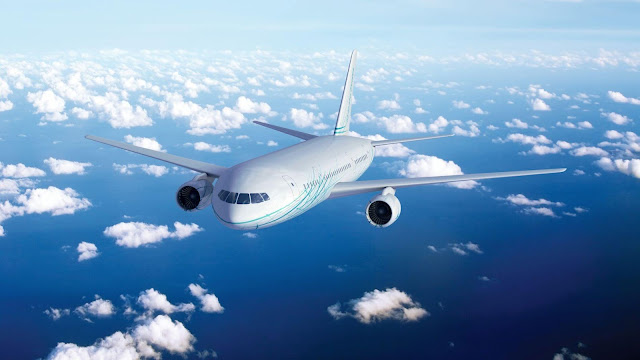 |
| Commercial Aircraft Market |
The global Commercial Aircraft Market is estimated to be valued at US$ 96.8 Billion in 2021 and is expected to exhibit a CAGR of 5.3% over the forecast period 2022 to 2030, as highlighted in a new report published by Coherent Market Insights.
Market Overview:
Commercial aircraft are airplanes used for commercial air travel. They are
designed to transport passengers and cargo. Commercial aircraft offer various
advantages such as faster travel, convenience, and cost-effectiveness compared
to other modes of travel. With the increasing air passenger traffic, there is a
growing need for larger and more efficient commercial aircraft. These aircraft
provide the capacity to accommodate a larger number of passengers and enhance
profitability for airline operators. Additionally, the need for fuel-efficient
and environmentally-friendly aircraft is driving the demand in the commercial
aircraft market.
Market key trends:
One key trend in the commercial aircraft market is the increasing demand for
regional jets. Regional jets are smaller aircraft designed for short-haul
flights and have a seating capacity of less than 100 passengers. They are used
for connecting smaller cities and towns, providing air connectivity to
under-served regions. The growing trend of urbanization, along with rising
disposable incomes, has led to increased air travel in regional areas. As a
result, airline operators are investing in regional jets to meet the growing
demand for air transportation in these regions. These aircraft offer
flexibility, efficiency, and cost-effectiveness for short-haul flights, making
them popular among airline operators.
PEST Analysis:
Political: The political factors that can impact the commercial aircraft market
are government regulations, trade policies, and geopolitical tensions. For
example, changes in trade policies can affect the import and export of aircraft
components, while geopolitical tensions can impact market stability and demand
for new aircraft.
Economic: The economic factors influencing the commercial aircraft market
include GDP growth, airline profitability, and fuel prices. Higher GDP growth rates
positively impact air travel demand, leading to increased demand for new
aircraft. Similarly, when airlines are profitable, they are more likely to
invest in expanding their fleet. Fuel prices also play a significant role as
they directly impact operating costs for airlines.
Social: Social factors shaping the commercial aircraft market include changing
travel patterns, demographic shifts, and consumer preferences. The rise of
low-cost carriers and increasing disposable income in emerging economies have
contributed to the growing demand for air travel. Additionally, changing
consumer preferences towards sustainable travel and environmental concerns have
prompted airlines to invest in more fuel-efficient aircraft.
Technological: Technological advancements, such as improvements in aircraft
design, materials, and avionics, have a significant impact on the commercial
aircraft market. For instance, the development of composite materials has led
to lighter and more fuel-efficient aircraft, reducing operating costs for
airlines. Furthermore, advancements in avionics have improved safety and
passenger experience, driving demand for newer aircraft models.
Key Takeaways:
The global Commercial
Aircraft Market Growth is expected to witness high growth, exhibiting a
CAGR of 5.3% over the forecast
period. This growth can be attributed to increasing air travel demand, driven
by factors such as rising GDP, expanding middle class, and increasing tourism.
In terms of regional analysis, Asia Pacific is projected to be the fastest-growing
and dominating region in the commercial aircraft market. The growth in this
region can be attributed to factors such as rapid economic development,
increasing urbanization, and the expansion of low-cost carriers.
Key players operating in the commercial aircraft market include Airbus SE, The
Boeing Company, Embraer SA, ROSTEC, ATR, Commercial Aircraft Corporation of
China Ltd., and Mitsubishi Aircraft Corporation. These companies dominate the
market due to their strong brand reputation, extensive product portfolios, and
technological innovations.
Read More,



0 Comments